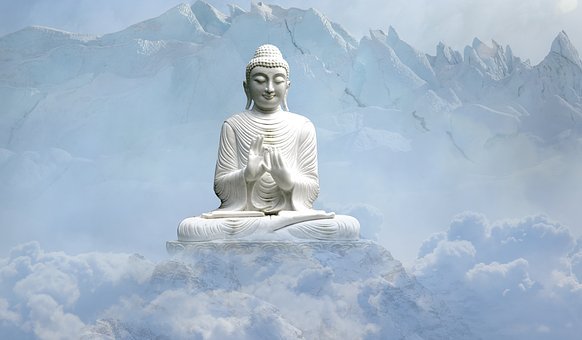“Yoga opens the doors to Indian culture”
-Dr. Jayadeva Yogendra, yogi and president of The Yoga Institute-
“If I had to search the entire world to find the country most richly endowed with all the prosperity, power and beauty that nature can bestow (in some places a veritable paradise on earth) I would point to India.”
-Max Müller, German philologist, indologist and orientalist-
1. Discovering Indian culture
Born and raised in the Catholic faith, I knew little or nothing of the rich Indian culture. Until I came to the Yoga Institute in Bombay. And there, when Dr. Jayadevaji stated that “Yoga opens the doors to Indian culture”, the blindfold fell from my eyes and the doors of our culture and my appreciation for it opened before me.
2. What is culture?
Culture is a general term that encompasses the set of ideas and literature, arts and architecture, sciences, dance and theater of a society. Culture is a lifestyle, it is the way of dressing, the food, the beliefs and religions, the languages, the economy, the symbols… Many of us Indians like me in the past are unaware of our culture and due to the dire effects of colonialism, we imitate the West and ignore our own culture. But yoga can correct this.
3. Indian culture and spirituality
The time of the Vedas was the Golden Age of Indian culture. “Spirituality is the master key of the Indian mentality; the sense of infinity is consubstantial with it,” said Sri Aurobindo, Indian philosopher and poet, and yoga practitioner.
Be it the Vedas, the Upanishads, the Darshanas, the Yoga Sutras and other ancient texts, at the core of all these teachings is spirituality. She is what moves the heart of Indian culture.
4. Indian literature
Among the many great ancient Indian writers, Kalidasa, who wrote in the Sanskrit language, is considered to be the most important playwright and poet of ancient India. His Abhijnana Shakuntala’s work can move the soul like no other and raised our cultural level to the heavens. Kalidasa’s poetry is immortal.
5. Epics
The Mahabharata has no equal in the annals of literature. It is a mythological epic that is considered revealed knowledge and that, in its hundred thousand verses with a didactic tone, develops the idea of duty. It was also Dr. Jayadeva Yogendra’s favorite source of citations. Our culture has this core idea of the fulfillment of duty as a fundamental element for the development of human life, a life that forever reached the highest levels of refinement thanks to the rich culture contained in the epics Ramayana and Mahabharata. The latter includes the Bhagavad Gita, one of the most important works of universal religious literature.
6. Purusharthas
No civilization can exist and no culture can flourish without the support of consistent guidelines for the development of life. The four main motivations of life (Purusharthas), as taught in our Indian culture, are:
dharma: duty
Artha: work to earn a living
Kama: pleasure, aesthetic pleasure
Moksha: liberation of the spirit, creative altruism
These four pillars sustain a culture and lay a firm foundation for the lives of individuals and society. They are part of the concepts of Yoga education taught at The Yoga Institute, where ideas from Indian culture are an integral part of Yoga study and practice.
These concepts give coherence to our life. Our culture has a vast spectrum of different ideas and approaches, but all of these component parts are like rays of light that remain consistent with the whole.
7. Yoga
Yoga philosophy provides a framework for the cultural transformation of humanity.
Yoga (refer to Yoga Sutras 2.28 and following for the different stages) deals with:
ethical behavior
Psychophysical training for optimal health
control of the senses
mind control
control of the subconscious
The search for the spiritual
Yoga gives connectivity to our culture, assembles and amalgamates it, and has consolidated its various dimensions.
In short, we can see why Max Müller was so enthusiastic about Indian culture that he went on to become one of the world’s best known and most important Indologists. We have this enormous wealth of knowledge at our disposal, but we ignore it. Like this poor writer, until he came to the Yoga Institute and his eyes were opened, all thanks to the Yogendra family.
Harold Sequeira, Yoga Teacher at The Yoga Institute (India)
-Translation: Juan Felipe Molina-

